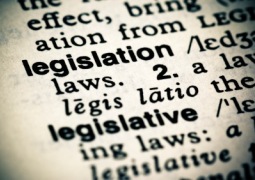
Parliament, Tuesday, 15 February 2022 – The Portfolio Committee on Basic Education today resolved to embark on an extensive public participation process for the recently introduced Basic Education Laws Amendment Bill, also referred to as the BELA Bill, to ensure all interested stakeholders are given an opportunity for their views to be heard.
The committee today mapped the way forward regarding the process it will likely follow to ensure thorough public engagement. Committee Chairperson Ms Bongiwe Mbinqo-Gigaba said the committee will try to use all platforms to make the public aware of the Bill.
The Bill will allow the amendment of the South African Schools Act of 1996 and the Employment of Educators Act of 1998. This is to make grade R compulsory and to amend the penalty provision in the case where a learner’s parent, or any other person, without just cause, prevents a learner who is subject to compulsory attendance from attending school. It proposes to increase the penalty provision from six months to 12 months.
The Bill also provides for the monitoring of school attendance by educators, principals and the school governing body (SGB). It further creates an offence in respect of the interruption, disruption or hindrance of school activities.
The Bill also seeks to enhance the authority of the Head of Department in relation to the admission of a learner to a public school, after consultation with the SGB. In addition, the Bill stipulates that the governing body of a public school must submit the school’s admission and language policies to the Head of Department for approval.
The draft Bill will assign official language status to South African sign language as a medium of instruction in a public school. In addition, the Head of Department may direct a public school to adopt more than one language of instruction, where it is practical to do so. If the Head of department issues such a directive, he or she must then take all necessary steps to ensure that the public school receives the necessary resources to enable it to provide adequate tuition in the additional language of instruction.
The Bill makes provision for the Minister to have the authority to appoint a person, an organisation or a group of persons to advise on curriculum and assessment-related matters. It also stipulates that the code of conduct of a public school must consider the diverse cultural beliefs, religious observances and medical circumstances of learners at the school; and provides for the inclusion of an exemption clause in the code of conduct and for disciplinary proceedings to be dealt with in an age-appropriate manner and in the best interests of the learner. It further provides for several changes to how SGBs currently function.
It also provides for conditions under which liquor may be possessed, sold or consumed on school premises or during school activities.
Ms Mbinqo-Gigaba said the committee agreed to provide a month for written public comment on the Bill, likely in March, after which it will still engage in public hearings.
ISSUED BY THE PARLIAMENTARY COMMUNICATION SERVICES ON BEHALF OF THE CHAIRPERSON OF THE PORTFOLIO COMMITTEE ON BASIC EDUCATION, MS BONGIWE MBINQO-GIGABA.
For media enquiries or interviews with the Chairperson, please contact the committee’s Media Officer:
Name: Rajaa Azzakani (Ms)
Tel: 021 403 8437
Cell: 081 703 9542
E-mail: razzakani@parliament.gov.za

